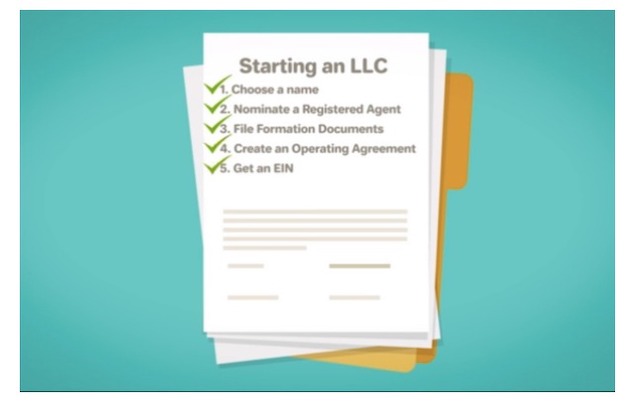Forming an LLC offers business owners, among other things, the benefit of legal separation between the members and the entity known as the “corporate veil.” As such, the business model offers entrepreneurs an enforceable personal liability protection when conducting business and in Texas, the laws relating to piercing the corporate veil are extremely stringent, making Texas one of the best places to register your LLC. Below we are going to outline the 5 key steps in forming your LLC in Texas.
1. To start off, you need to decide on a name for your business.
Check name availability
Before settling on a name, business owners need to conduct extensive research to make sure that their chosen name is available both at your state trademark office and as the domain name you wish to reserve. It is advisable that when brainstorming what to call your business, you should come up with three or four options, just in case one or more of them are taken.
Follow regulation guidelines
Your LLC name must include words/letters at the end to indicate which type of entity it is. The particular laws vary per state, but when choosing a name for your Texas LLC, it is vital that you include either the abbreviation LLC or L.L.C. at the end of your name. Your name also cannot include words in it that may potentially mislead the public or governing bodies to believe that the entity is a government agency of any kind. There are also a list of restricted words that your LLC can only include in the title if there has been additional paperwork filed which proves the nature of the business.
2. Then you’ll need to choose your registered agent
In Texas, your LLC is required by law to select an agent to act as their main communication channel with the government. You must provide your managing agent’s full details and contact information with the local governing bodies and you are also required to have a valid business address to which all communications can be sent and through which the state is able to contact your managing agent directly. It is vital that this address is not a home or personal address as this poses a potential legal threat in the protection offered by the corporate veil which separates your business from your personal matters. Although legally required by the state of Texas, having a registered agent can mean that your company may incur additional costs – both for registration of the managing agent and for renewal of this agent.
Don’t Miss-
Tips for Startups: 5 Business Milestones to Achieve in Your First Year
5 Common Office Supplies that You’ll Need When You Start Your Business
3. After registering your agent, you will need to file The Texas LLC Certificate of Formation
Completing the Texas LLC Certificate of formation can be done in person, online and through the post. It is essentially a legal notification that you wish to formally register your business. In this document you will provide all of the aforementioned information to your government agency, such as your registered agent and their details, your chosen legal name and all other information required for the government to approve your registration.
4. Next you should create your Texas LLC Operating Agreement
An LLC operating agreement, although not legally required by Texas law, is still a good document to have. It can provide your business with a simple blueprint upon which you can manage the direction of your business and outline the allocation of funds etc. Creating an operating agreement is often an excellent way of gaining clarity around how you wish to handle the day to day running of the business and it is a great tool for reducing conflict between members further down the line.
5. And finally you should apply for an EIN
The final step in the process of forming an LLC in Texas is to apply for an EIN or Employer Identification Number. This is a nine-digit number issued for free by the IRS which is used as your tax identification and reference number in all future business tax filing activities. EIN’s are not necessarily required by Texas law, but you will need to have an EIN number in order to open a bank account, hire employees and file your taxes.

